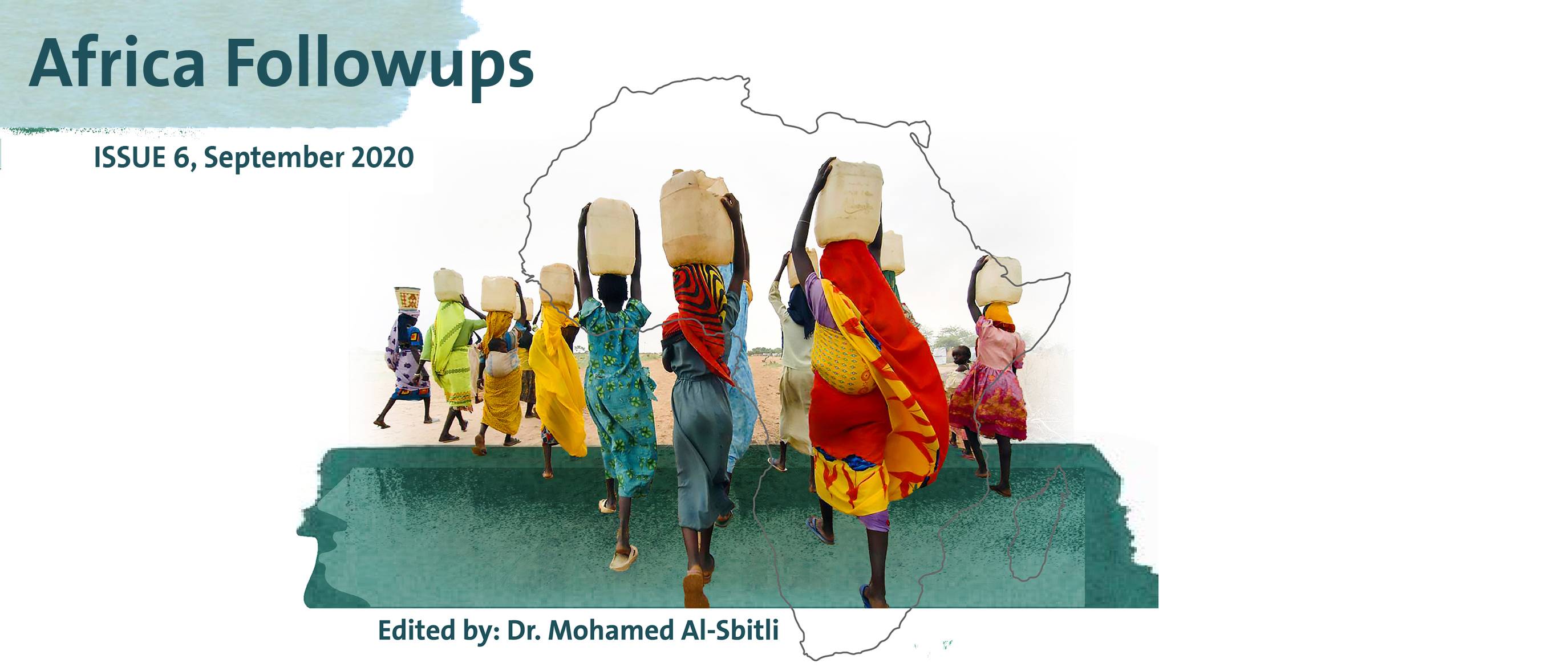Research Papers
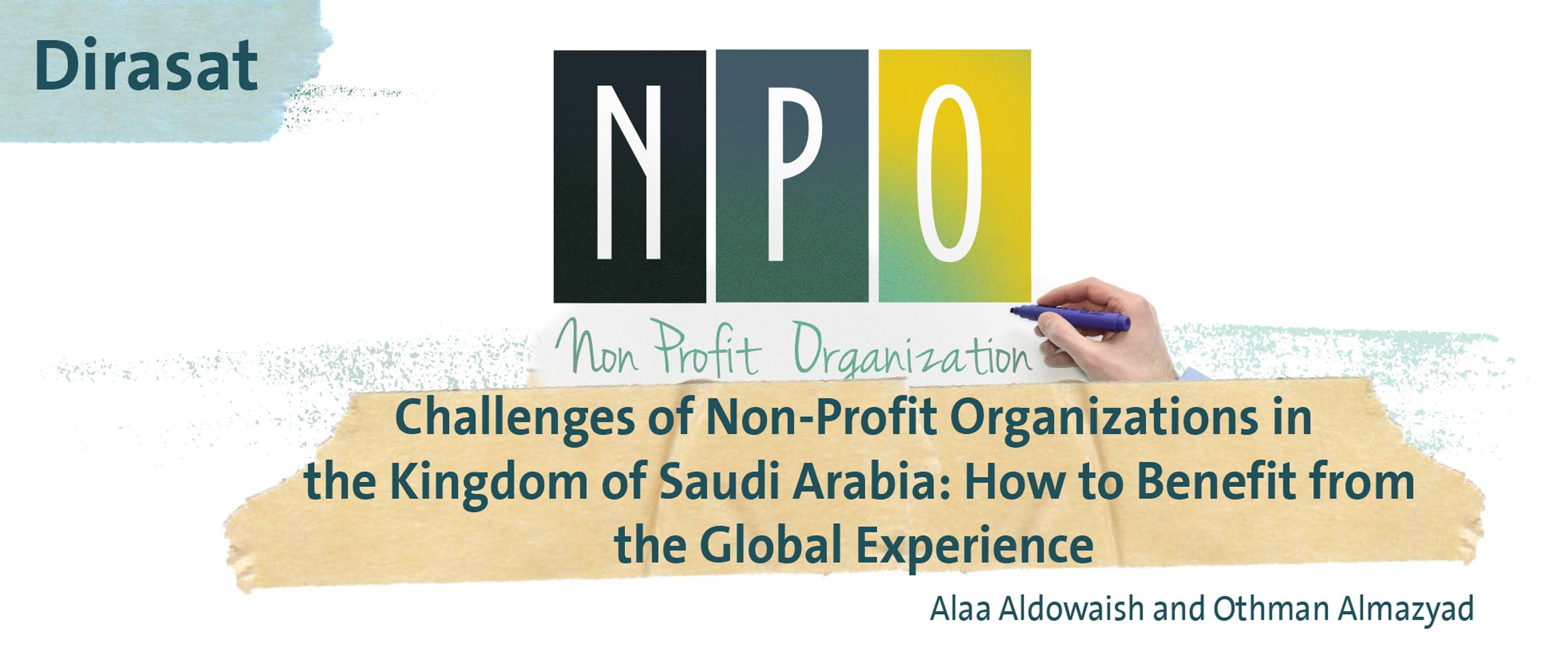
Number: 59
Author: Alaa Aldowaish and Othman Almazyad
This publication is available in Arabic only.
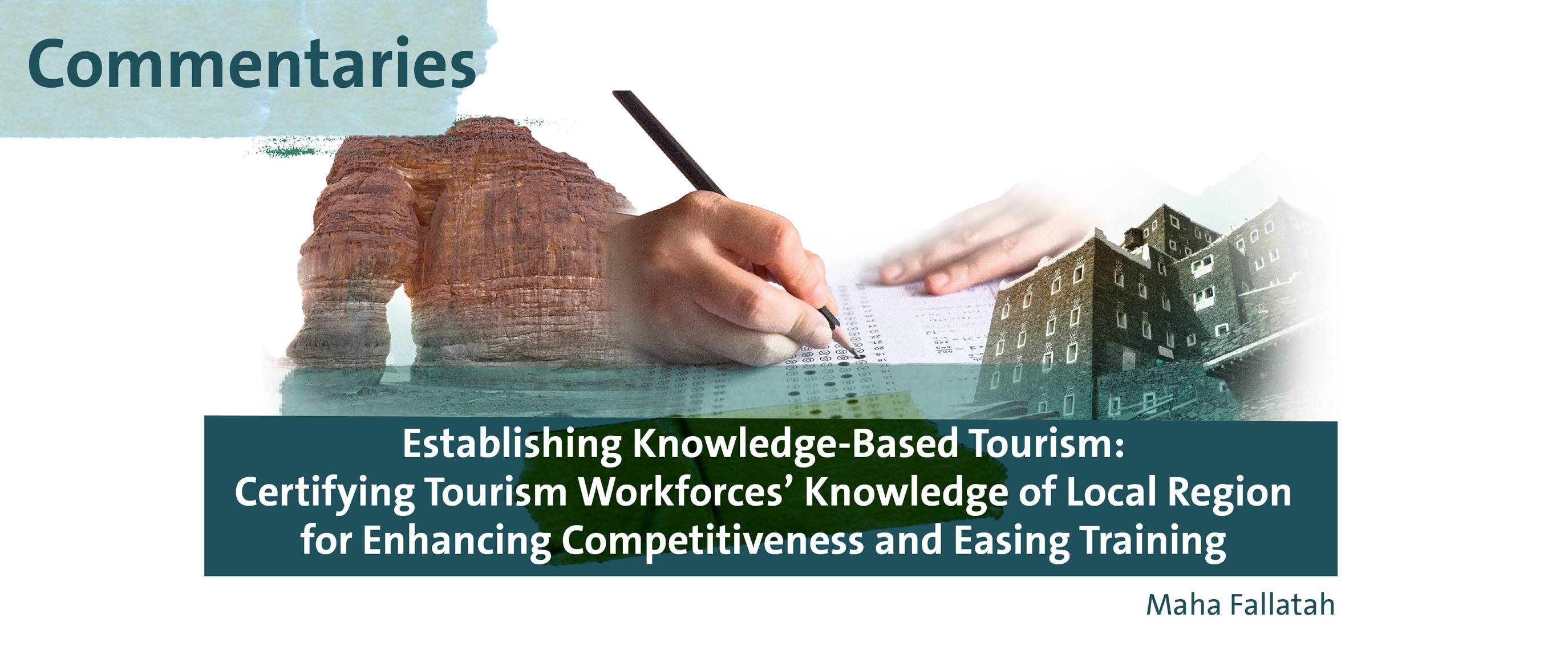
Number:
Author: Maha Fallatah
While tourism has been one of the economic sectors hit hardest by the COVID-19 pandemic, this period of patience provides ample opportunities for the sector to enhance its competitiveness and prepare itself for receiving large numbers of international visitors again. The Saudi tourism sector can convert this crisis into a chance by upgrading itself with the goal to harness human capital and form a key part of the Kingdom’s knowledge-based economy. There are multiple pathways to establishing what we may call knowledge-based tourism. One way – on which this Commentary focuses – is to enhance the knowledge of the tourism sector’s workforces about their local
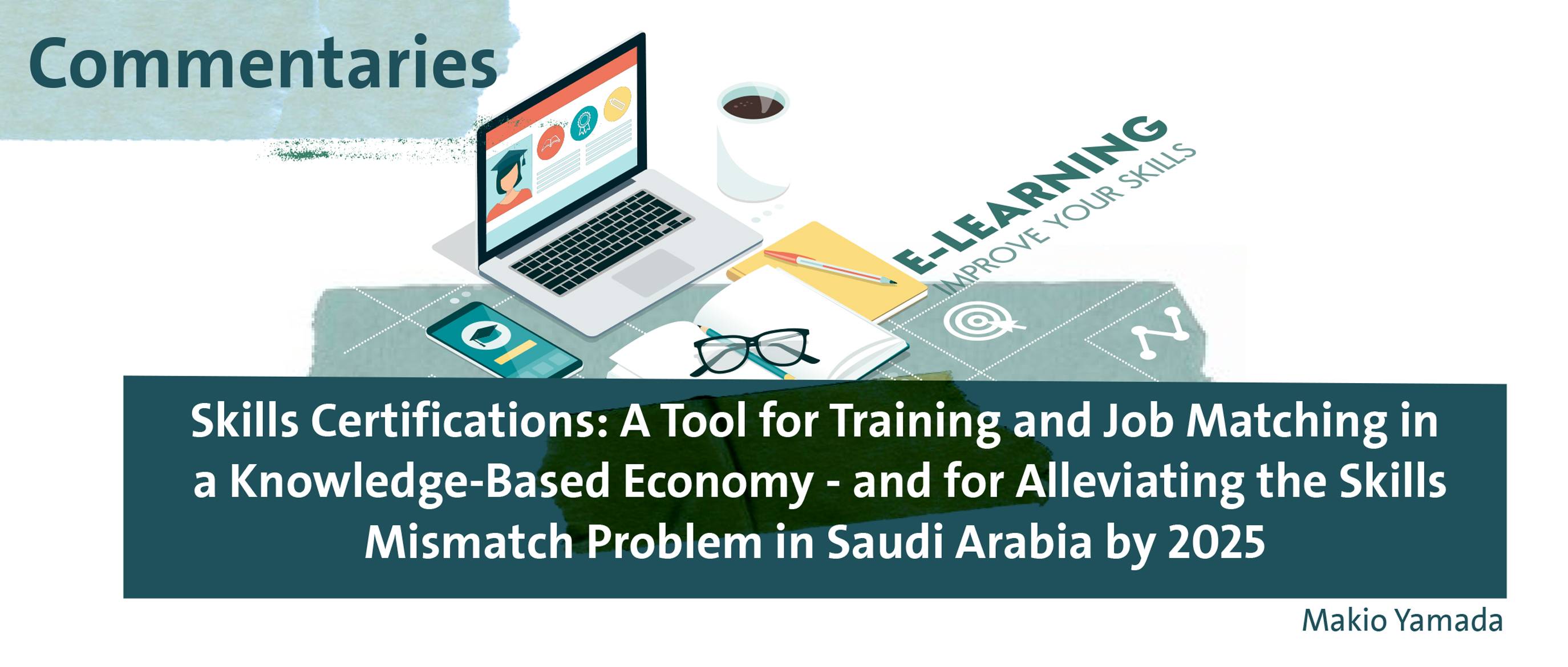
Number:
Author: By Makio Yamada
The first five years of the Saudi Vision 2030 period will be over soon. As of the first quarter of 2020, the Saudization rate of the private sector had improved to 20%. Saudi Arabia’s endeavor to create jobs for its young citizens will now continue over the second five-year period. There are two methods of job creation in the Saudi labor market: one is by localizing the existing jobs which are currently occupied by expat workers; the other is by creating new job opportunities. Given that the second method is currently not highly available due to the repercussions of the COVID-19 pandemic, the first one is likely to be central to the country’s job creation policy for
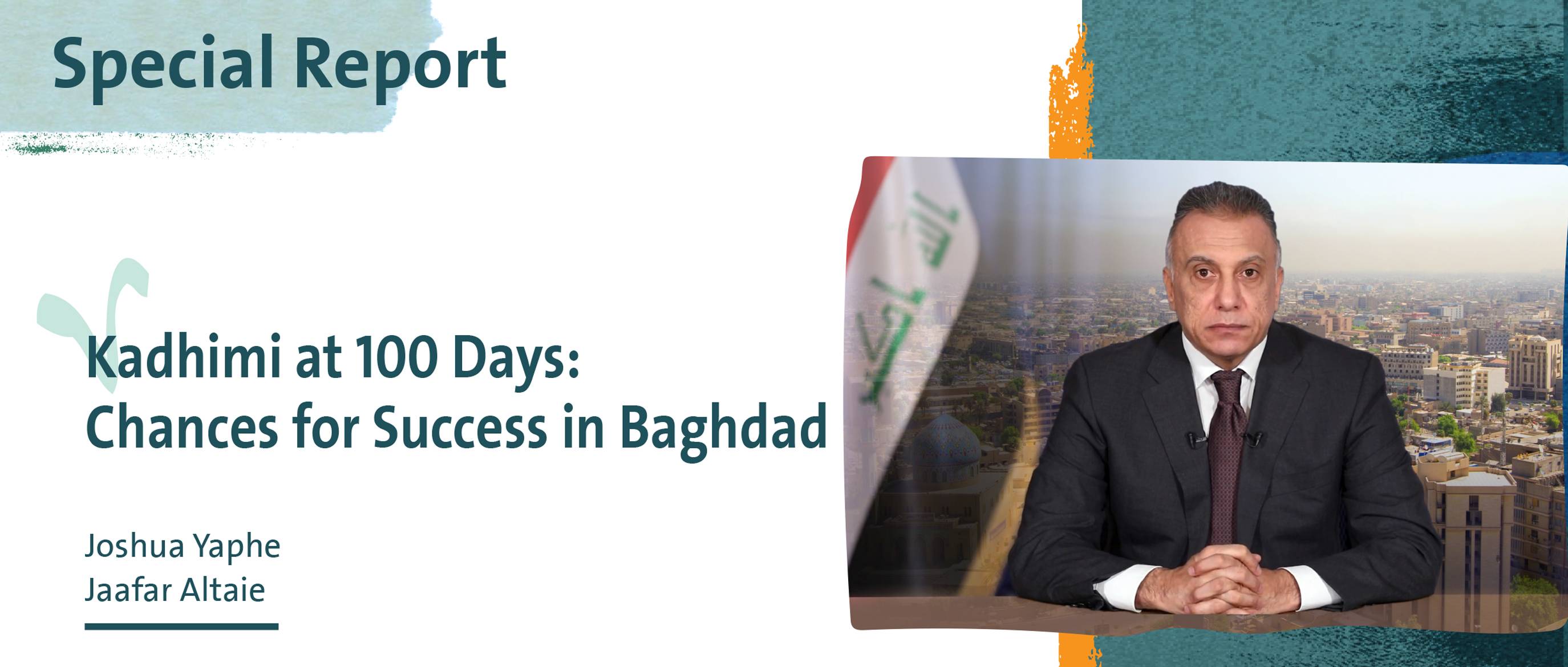
Number:
Author: By Joshua Yaphe and Jaafar Altaie
Iraqi Prime Minister Mustapha al-Kadhimi faces the same challenges that brought down his predecessor - street protests, a flagging economy and entrenched political elites. Numerous comentators are ready to write him off, and he is unlikely to overcome all of the country's problems before the next elections. However, given the political malaise in Baghdad, Kadhimi has a real chance of coming out ahead with a mandate for reform.
This report is available in Arabic only. Its English version has been published by National Council on U.S.-Arab Relations.
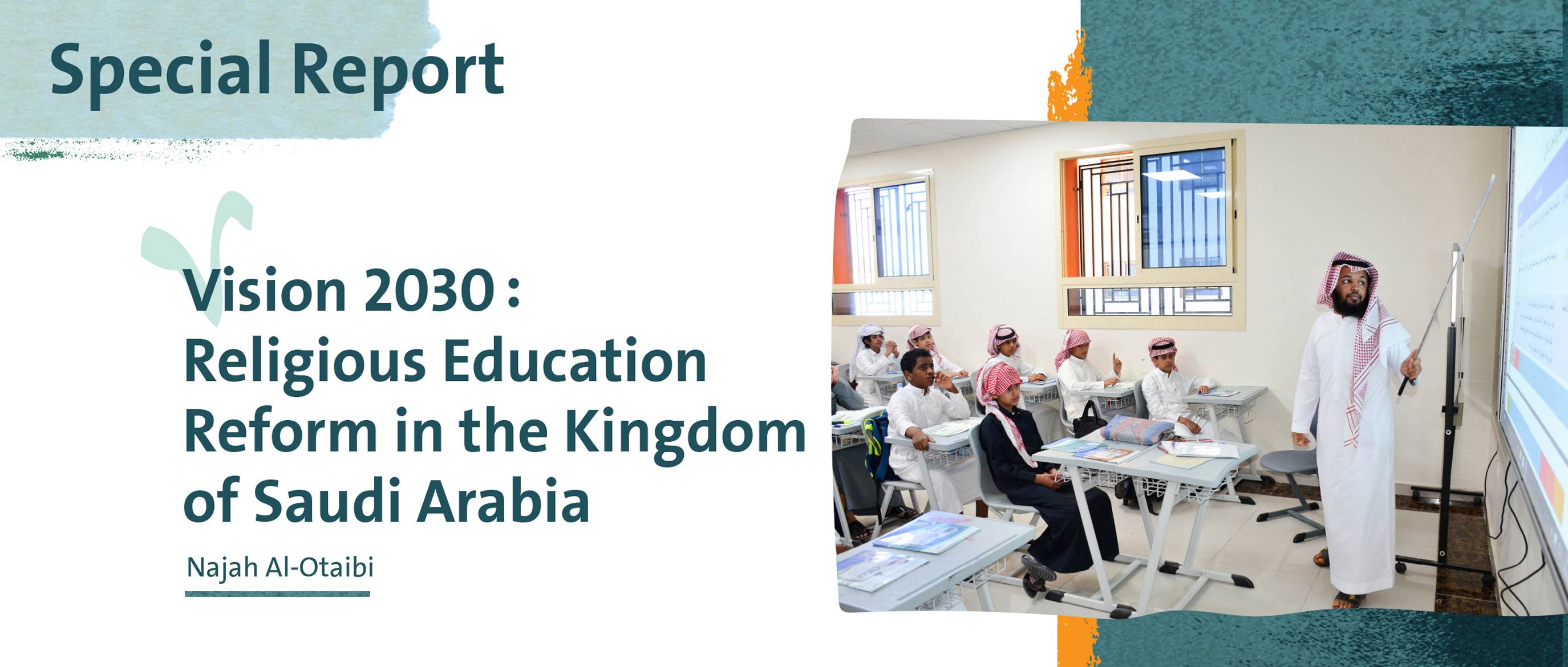
Number:
Author: Dr. Najah Al-Otaibi
This report examines Saudi Arabia’s current dual approach to reforming the education system. On the one hand, Riyadh is working to weed out extremist narratives directly by encouraging the religious establishment to adopt and promote a moderate interpretation of Islamic rhetoric. On the other hand, the government is working to introduce modern content to the curricula, such as science, philosophy, music, and Chinese language that will help the Kingdom to build a modern economy led by the private sector.
Under Vision 2030, reform of the education system was presented as the means of implementing economic reforms; this deliberat
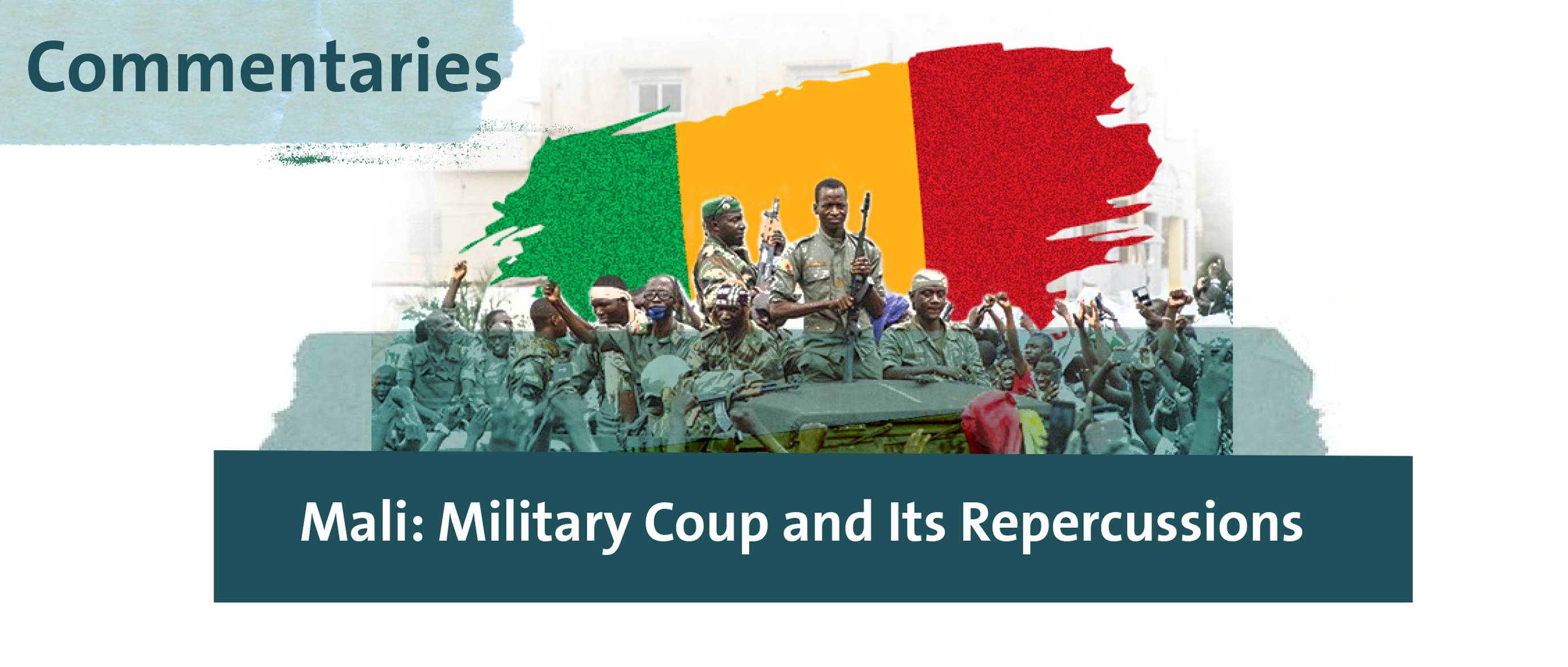
Number:
Author:
The military coup in Mali has provoked strong international and regional reactions. At home, however, he received a great public welcome. This comment takes into account local, regional and international implications, stated [declared] positions, insults and parties involved in the process of change.
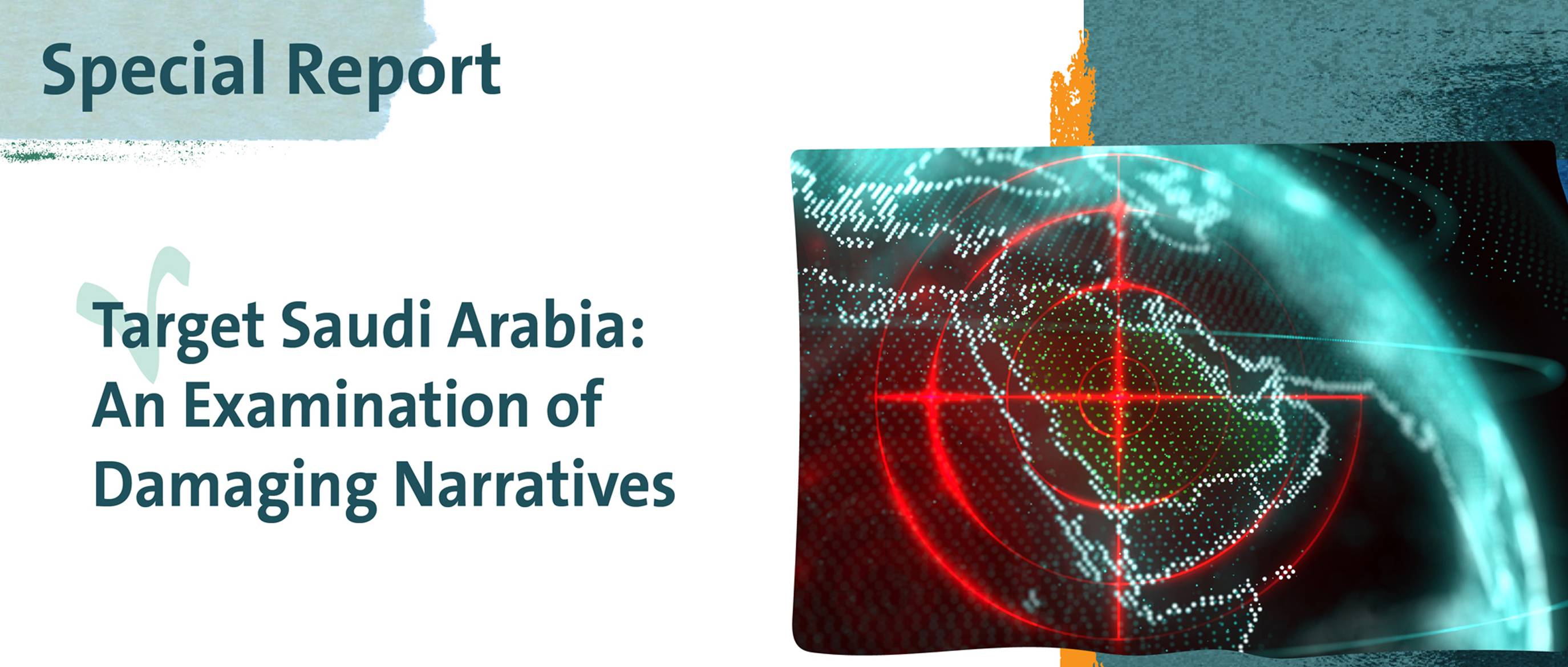
Number:
Author: Joseph A. Kéchichian
This brief study provides a broad examination of the negative assessments of Saudi Arabia published by several authors intrigued to explore, but never patient enough to understand, adjudicate, and empathize with the Saudi people. While not exhaustive, the research aims to identify problems, evaluates various arguments presented by four writers, and assesses the new political realities that confront the Kingdom. The five books selected for evaluation, by Pascal Menoret, Christine Ockrent, Jonathan Rugman, and Ben Hubbard, represent a fair and representative collection. Because recent books concentrate on Heir Apparent Muhammad bin Salman and the killing of Jamal Kha
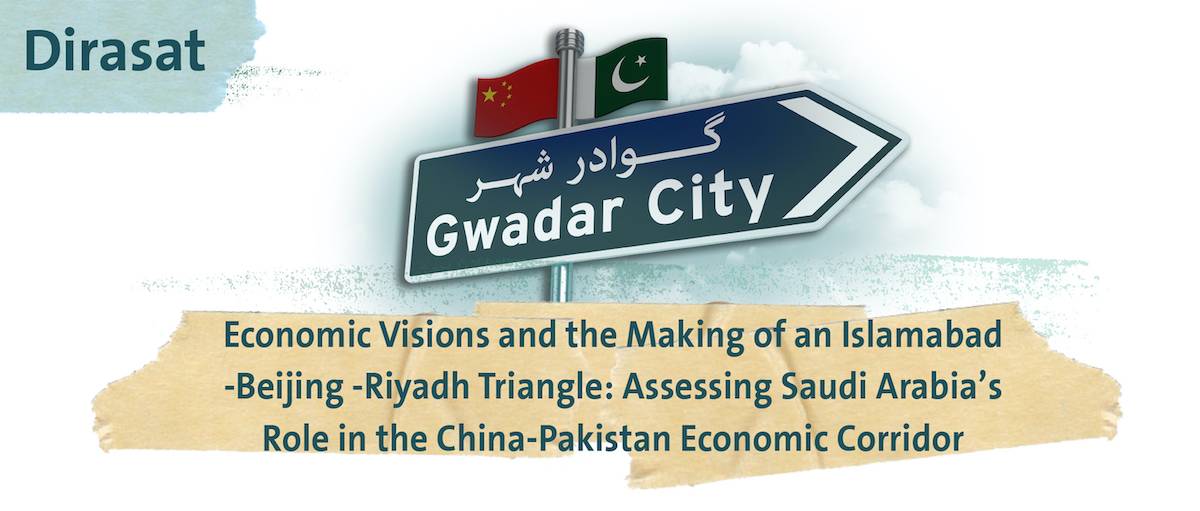
Number: 58
Author: Eram Ashraf
The study examines the opportunities and challenges that face a possible Saudi role in the China-Pakistan Economic Corridor (CPEC). It argues that while Saudi investments in Gwadar might be economically viable over the long-term, their real benefit lies in strengthening the Kingdom’s relationship with both China and Pakistan. Cooperation between the three states there has the potential to give rise to an Islamabad-Beijing-Riyadh triangle based on economic dynamics.
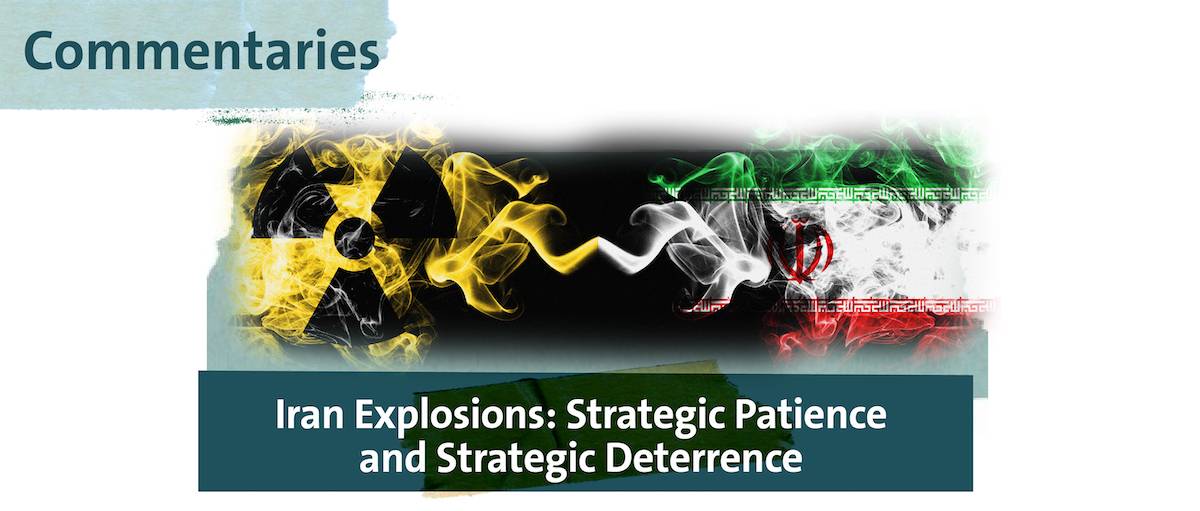
Number:
Author: Hasan Razi
The commentary deals with fires and explosions in Iran that have expanded in recent times. It highlights serious and unprecedented events in Iran's recent history, exposing economic and political damage, as well as trying to understand what is happening in Iran and those entities that are behind these events and their future repercussions on Tehran's regional and international relationship, on one hand, and the future of the Iranian regime in light of the domestic and foreign crises and the policy of pressures and containment that Washington is exerting against it on the other hand.

